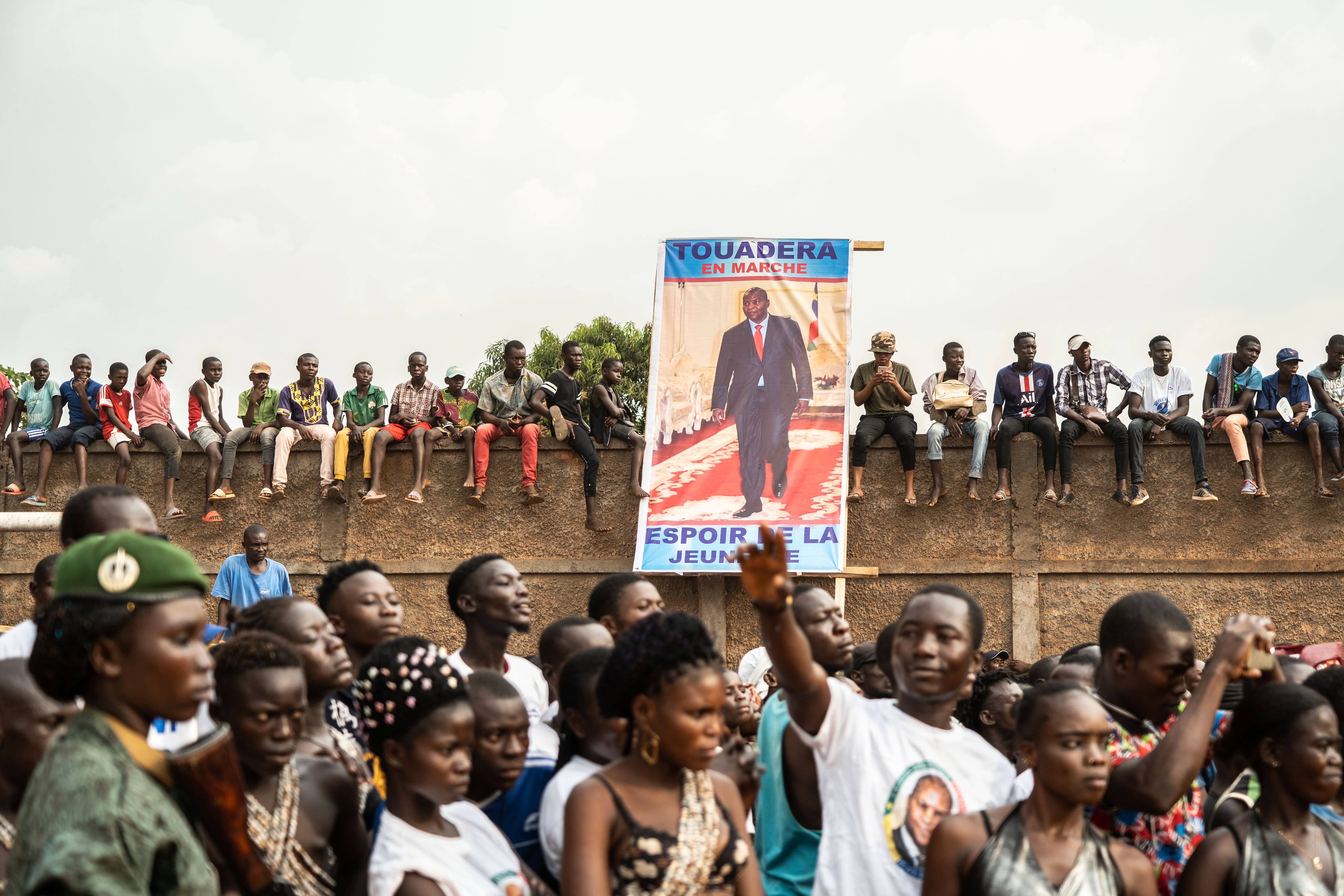Violence a threat ahead of Central African Republic's vote
Violence threatens Central African Republic’s presidential and legislative elections on Sunday, and some opposition candidates have pulled out of the race amid growing insecurity

Your support helps us to tell the story
From reproductive rights to climate change to Big Tech, The Independent is on the ground when the story is developing. Whether it's investigating the financials of Elon Musk's pro-Trump PAC or producing our latest documentary, 'The A Word', which shines a light on the American women fighting for reproductive rights, we know how important it is to parse out the facts from the messaging.
At such a critical moment in US history, we need reporters on the ground. Your donation allows us to keep sending journalists to speak to both sides of the story.
The Independent is trusted by Americans across the entire political spectrum. And unlike many other quality news outlets, we choose not to lock Americans out of our reporting and analysis with paywalls. We believe quality journalism should be available to everyone, paid for by those who can afford it.
Your support makes all the difference.Violence threatens Central African Republic’s presidential and legislative elections on Sunday, and some opposition candidates have pulled out of the race amid growing insecurity.
President Faustin Archange Touadera and his party say the vote will go ahead after government forces clashed with rebels in recent days as the United Nations’ peacekeeping force tried to prevent a blockade of Bangui, the capital.
Rwanda, which sent in soldiers after its peacekeepers came under threat, and Central African Republic have blamed the confrontation on former President Francois Bozize, alleging an attempted power grab ahead of a vote from which he is barred from participating. Russian forces also have arrived to help with security.
Parties in the Democratic Opposition Coalition known as COD-2020 this week said seven of its candidates will pull out of the election, citing the violence. The parties had wanted the vote to be delayed, alleging poor preparations and an electoral body influenced by the president. A delay would allow more time to work toward a national unity government, the parties said.
Experts warn of a strong chance of further violence if the opposition doesn’t accept the election results. “A contested outcome may lead to a post-electoral crisis that armed groups could use to further weaken the state,” the International Crisis Group noted.
Sixteen candidates are running for president, including three women and Touadera. There are more than 1,500 candidates for 140 seats in the national assembly. More than 1.86 million voters are registered, but more than 598,000 refugees in neighboring countries will not vote, according to the U.N.
The mineral-rich Central African Republic has faced deadly inter-religious and inter-communal fighting since 2013, when predominantly Muslim Seleka rebels seized power from Bozize after long claiming marginalization. Resistance to Seleka rule eventually led to Muslims being targeted en masse, with some beaten to death, mosques destroyed and tens of thousands forced from the capital in 2014.
Despite a 2019 peace agreement between the government and 14 rebel groups, intermittent violence and human rights abuses have continued.
The most recent insecurity began after the Constitutional Court rejected the candidacy of Bozize, who returned from exile a year ago. His candidacy did not satisfy the “good morality” requirement.
Bozize, who took power in a coup in 2003 and ruled until 2013, faces an international arrest warrant for “crimes against humanity and incitement of genocide.” He also faces U.N. sanctions for his alleged role in supporting the anti-Balaka groups that resisted the Seleka in 2013.
Meanwhile, Facebook this week announced that individuals linked to Russia and the French military used fake Facebook and Instagram accounts to wage a covert disinformation campaign in Central African Republic ahead of the elections.
Facebook said it took down hundreds of accounts and groups linked to France and Russia accused of “coordinated inauthentic behavior.” France and Russia have been jockeying for influence in the region.
___
Petesch reported from Dakar, Senegal.